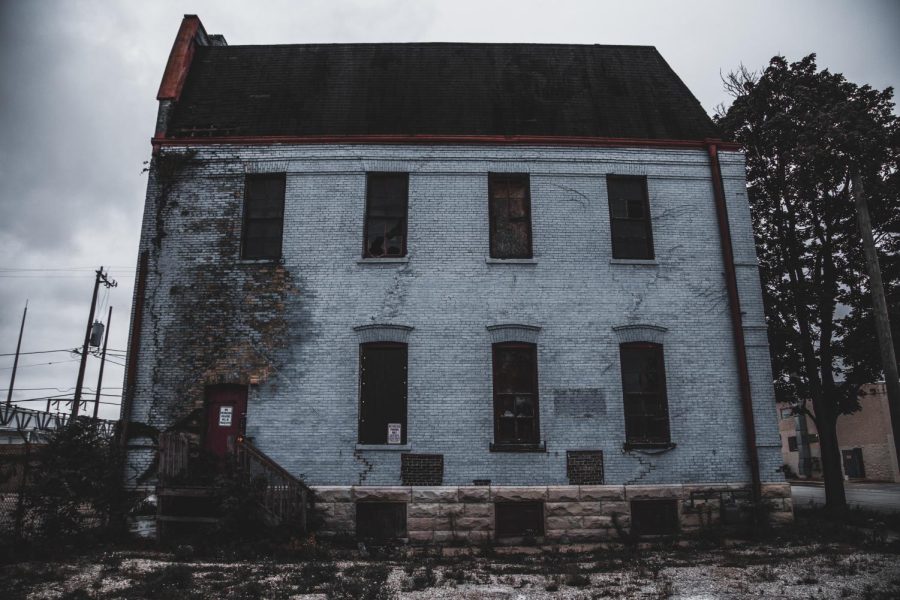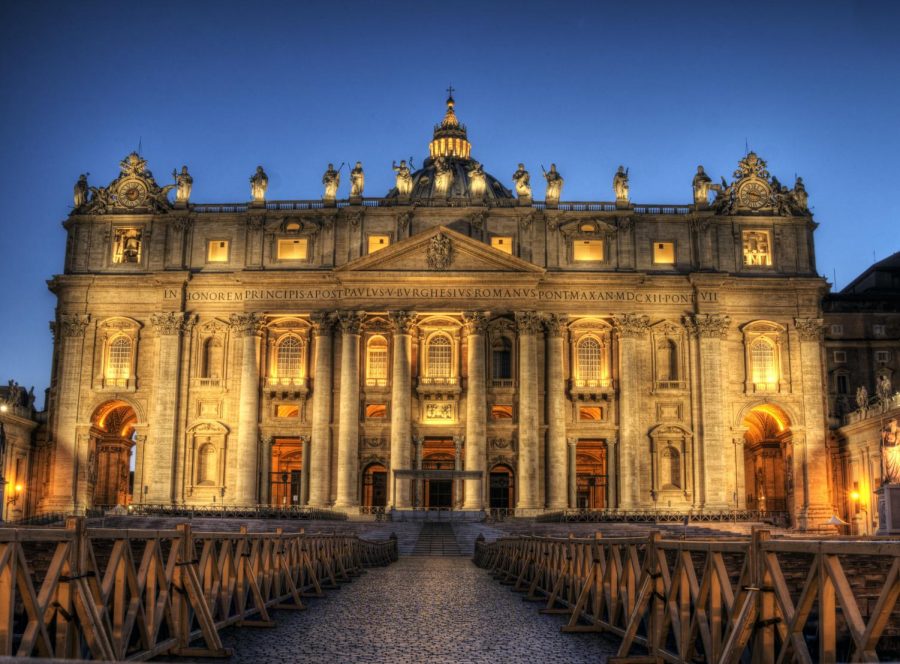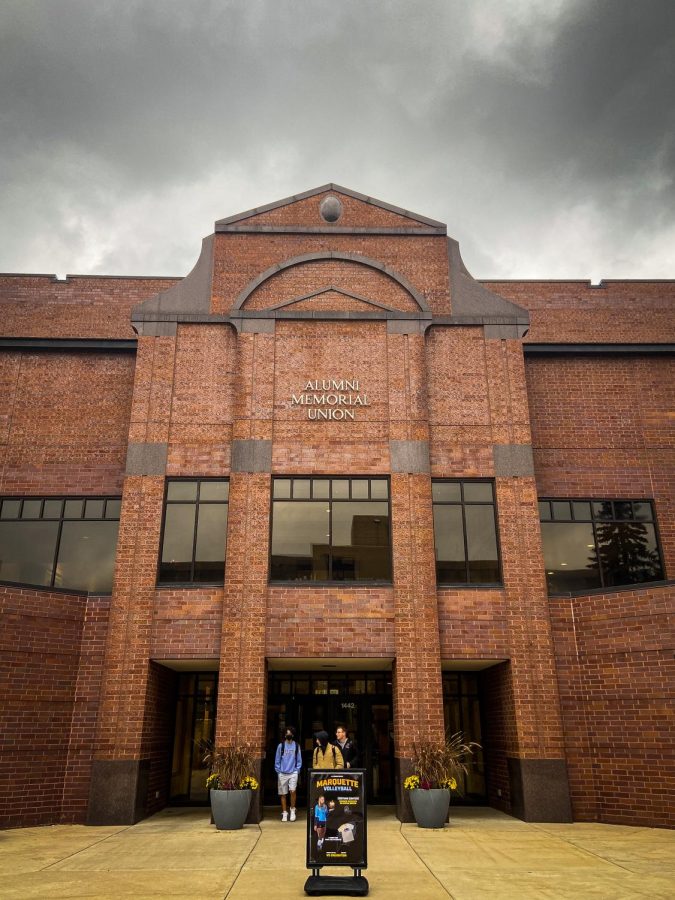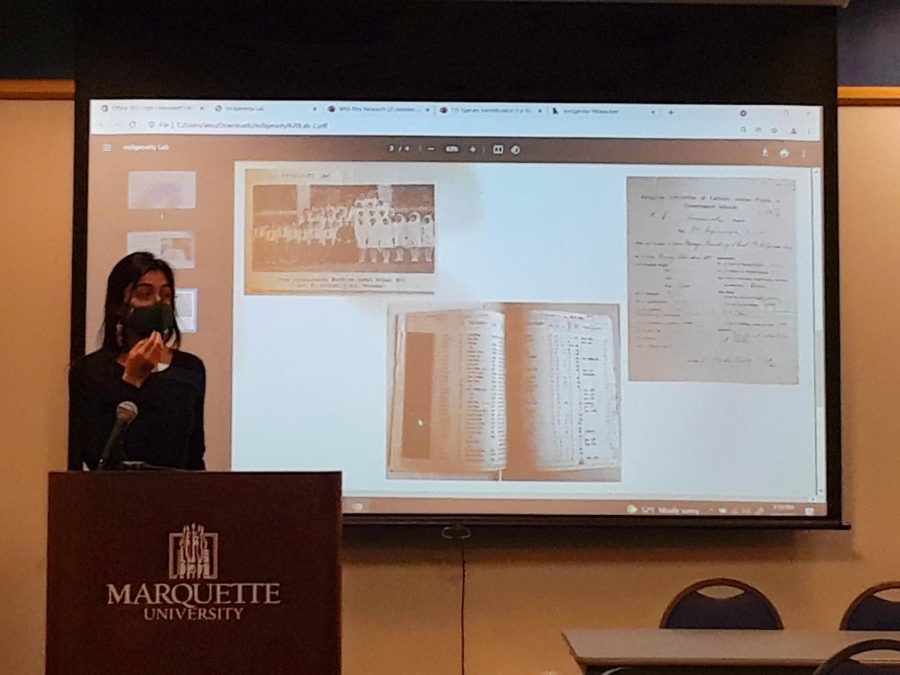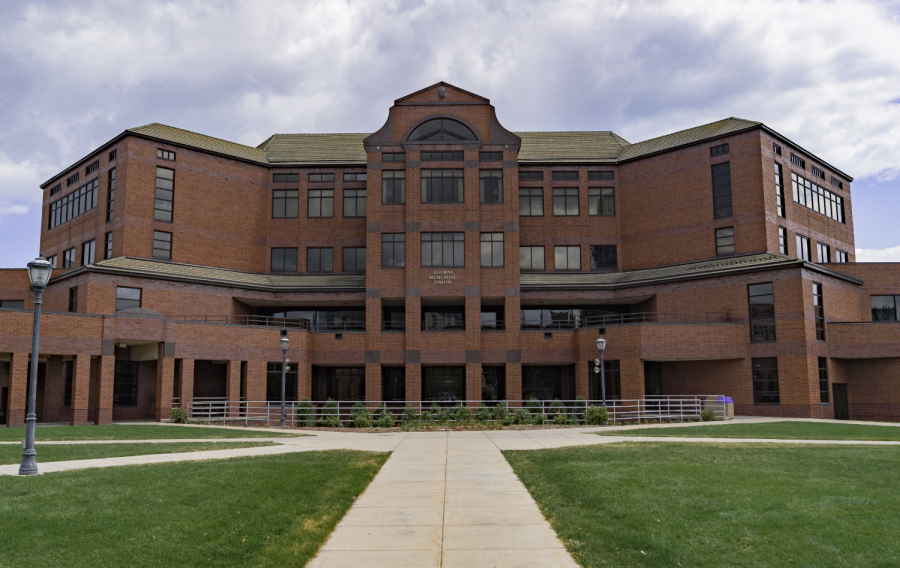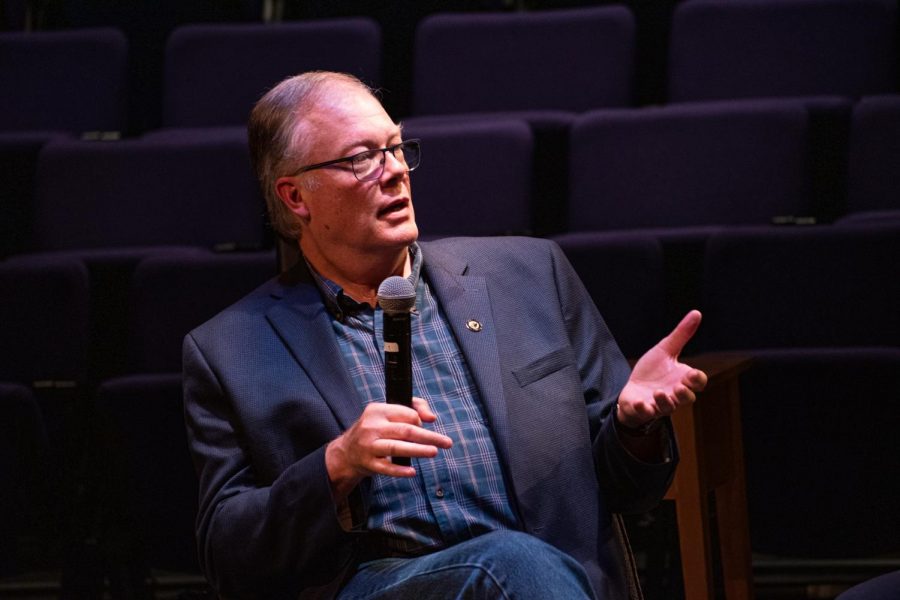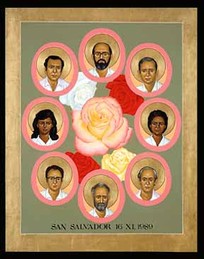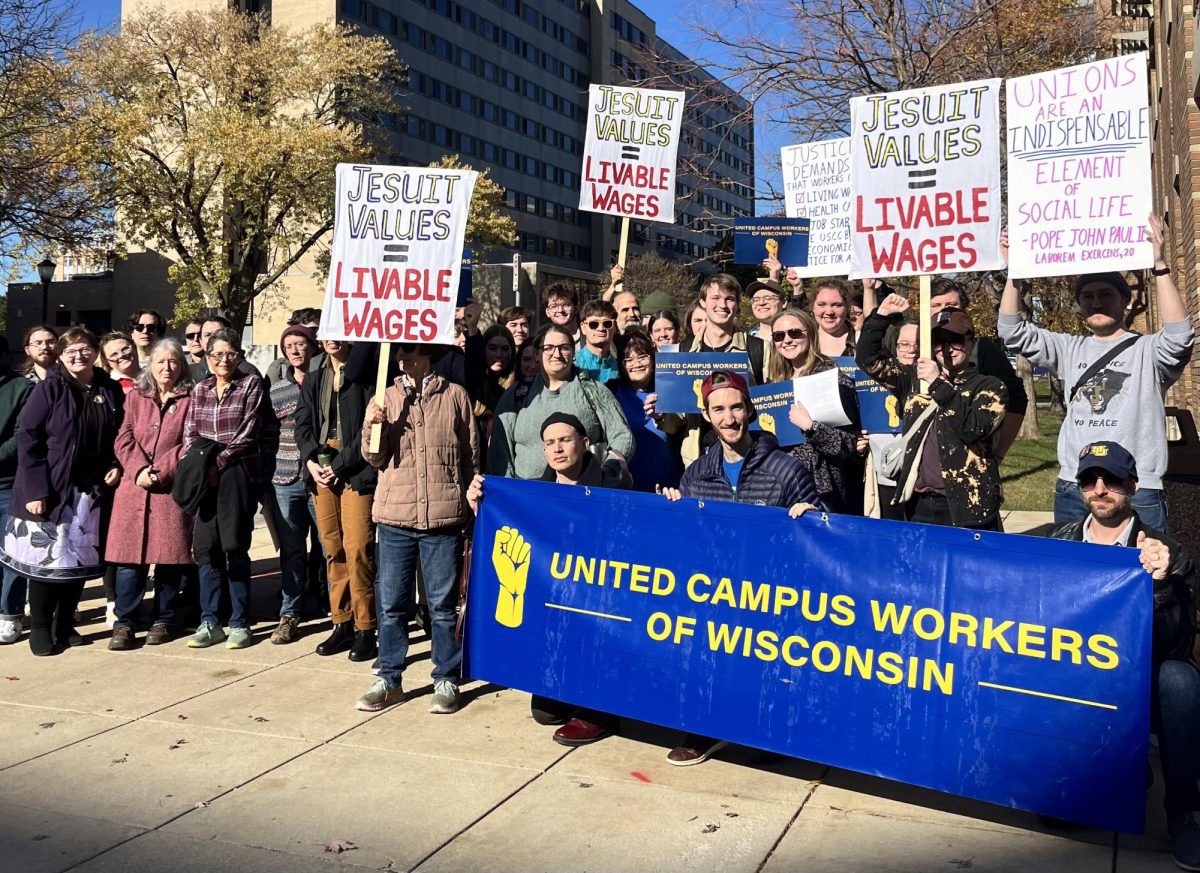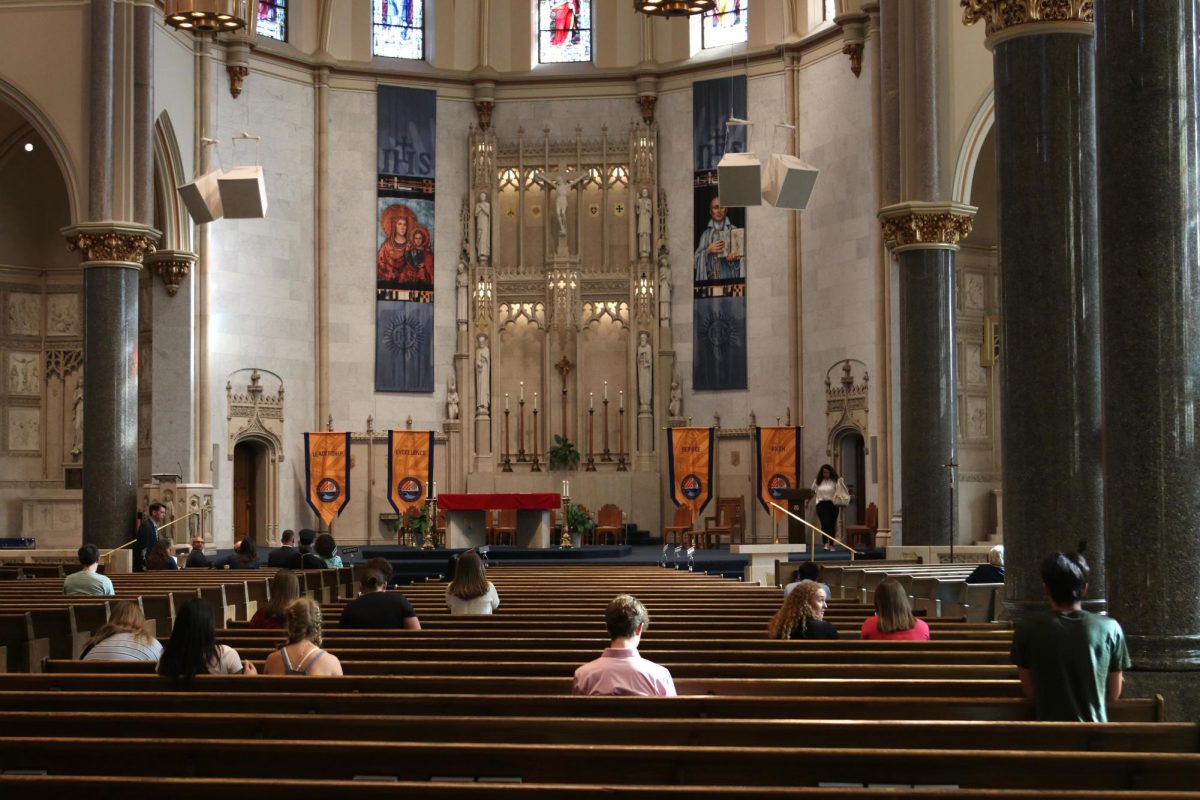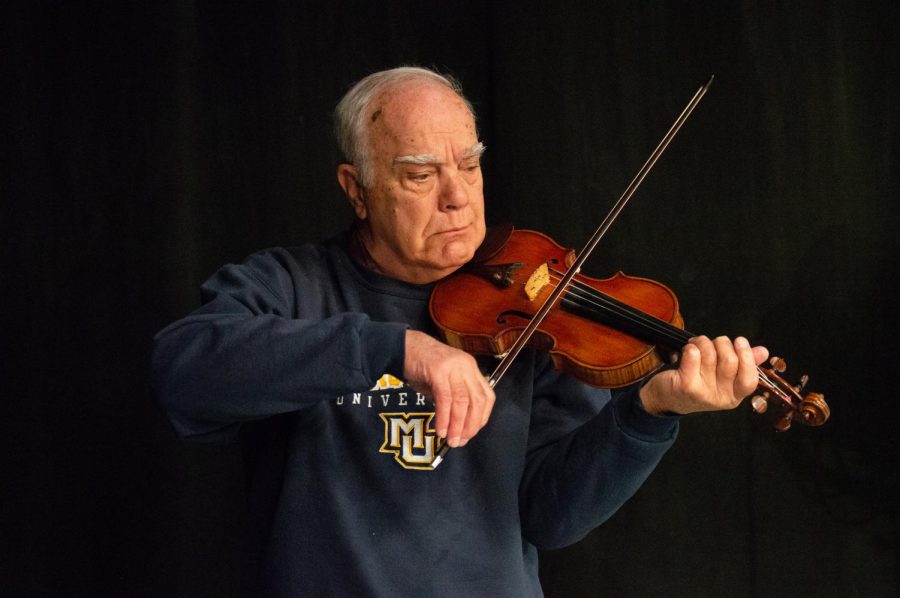Students, administrators, faculty and staff came together to ponder, and sometimes question, Marquette’s Catholic identity in the second installment of the “Revitalizing Marquette” discussion series Thursday night.
The “Imagine Mission” brought together approximately 60 people from all walks of life on campus to discuss the challenges Marquette faces in remaining true to its Jesuit identity and mission, particularly doing so while also remaining inclusive of the LGBT community.
The previous discussion, “Revitalizing Marquette: A Series of Conversations to Reflect, Discuss and Move Forward,” was held in February to address the concerns stemming from last spring’s failed College of Arts & Sciences dean search, and the subsequent turmoil.
Hilary Braseth, a senior in the College of Arts & Sciences and an organizer of the event, said the discussions were being held to “create a lasting mechanism worked into our campus fabric to continue dialogue.”
Held in the Lunda Room of the Alumni Memorial Union, the session began with presentations from six students, faculty and administrators about their experiences dealing with religion at Marquette.
Aishah Al Fadhalah, a sophomore in the College of Health Sciences, grew up in Kuwait and didn’t know what to expect in coming to Marquette.
“Coming from a Muslim family … there was no sense of what Jesuit meant,” Al Fadhalah said. “But during (freshman) orientation, I saw a Muslim praying room and knew this place was a very welcoming environment — one where we can learn more about other people’s religions.”
Another student named Matthew opened up about his “very Christian” upbringing in Malaysia and experience in balancing his identity as a gay man with his faith.
“A part of the reason I came to Marquette was because there was no platform for openly gay conversation (in Malaysia),” he said. “I saw Marquette as a place (to) reconcile my faith and sexual identity.”

As a freshman, he joined a Christian student organization and was quickly elected worship leader. But after some time he was asked to step down because he broke celibacy, an explanation he felt wasn’t the real reason, as he felt he was an outcast because of his sexual orientation.
“Marquette is a great place, but there are so many issues to address,” he said. “Specifically, what it means to be Catholic or Jesuit and LGBT.”
Some others took issue with how Marquette portrays itself as a Catholic institution, but feel the university really isn’t totally committed to that identity.
Margaret Steele, a graduate student in the College of Arts & Sciences, had some pointed words regarding Marquette’s Catholic identity.
“Marquette, it seems like, is picking and choosing when, and in what respects, to be Catholic,” Steele said.
The discussion was then broken down into confidential small-group sessions, before regrouping and discussing possible solutions.
And as the sentiment has generally been, those in attendance felt communication between the administration and campus is partly to blame, and is something the university should consider a priority to improve.
One small group felt that Marquette “shouldn’t have to apologize” for being a Catholic institution. It is important that the Catholic identity has a place in the university’s decision-making and practices, and it’s hard to be perfect in its application, group members said.


